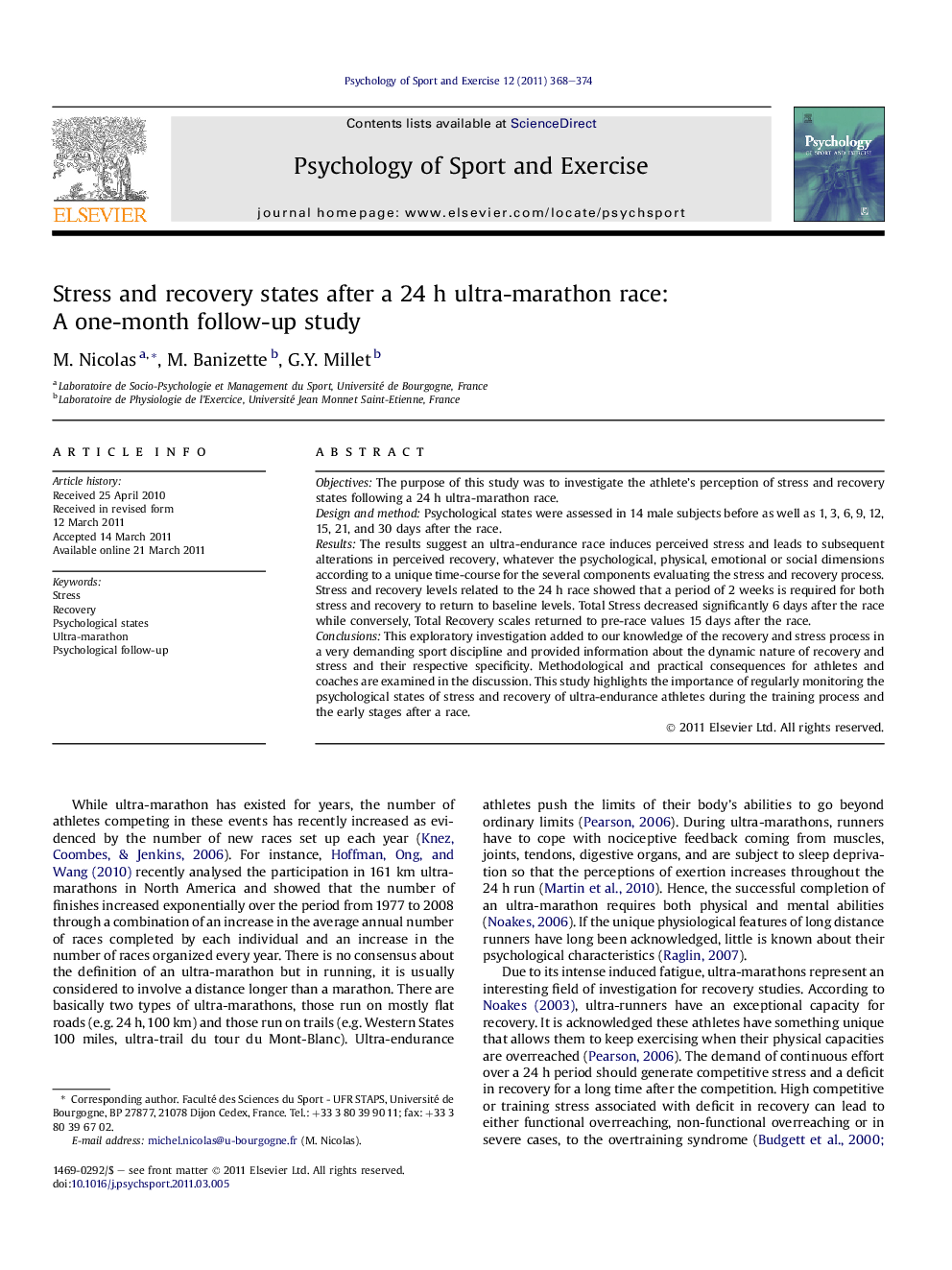| Article ID | Journal | Published Year | Pages | File Type |
|---|---|---|---|---|
| 894420 | Psychology of Sport and Exercise | 2011 | 7 Pages |
ObjectivesThe purpose of this study was to investigate the athlete’s perception of stress and recovery states following a 24 h ultra-marathon race.Design and methodPsychological states were assessed in 14 male subjects before as well as 1, 3, 6, 9, 12, 15, 21, and 30 days after the race.ResultsThe results suggest an ultra-endurance race induces perceived stress and leads to subsequent alterations in perceived recovery, whatever the psychological, physical, emotional or social dimensions according to a unique time-course for the several components evaluating the stress and recovery process. Stress and recovery levels related to the 24 h race showed that a period of 2 weeks is required for both stress and recovery to return to baseline levels. Total Stress decreased significantly 6 days after the race while conversely, Total Recovery scales returned to pre-race values 15 days after the race.ConclusionsThis exploratory investigation added to our knowledge of the recovery and stress process in a very demanding sport discipline and provided information about the dynamic nature of recovery and stress and their respective specificity. Methodological and practical consequences for athletes and coaches are examined in the discussion. This study highlights the importance of regularly monitoring the psychological states of stress and recovery of ultra-endurance athletes during the training process and the early stages after a race.
► Ultra-endurance races induce perceived stress and lead to subsequent alterations in perceived recovery. ► A period of 2 weeks is required for both stress and recovery to return to pre-race values. ► Regular monitoring of stress and recovery states should prevent overreaching and overtraining.
